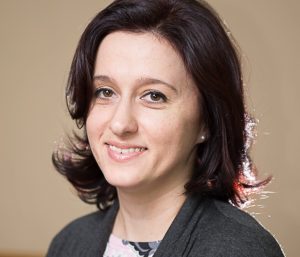Is "Archive Fever" in the Past?
1.10.2020, 16:00
Exhibition Hall, Center for Urban History
For some time, the function of an "archive" or "archiving" was to take record (recordari) of the past through preserving the memory and the information vehicles about events, institutes, and institutions, personalities, or groups of people. Modern archiving practices claim that an archive is not only about a document from the past, but rather a way to have archive materials and representations of the past be used today. The multiple discussions about the functions of archives also raise an issue about the place and status of various materials, often cause by the archive’s institutional policy.
Welcome to the workshop to discuss the status of the archive today, and talk about the research and the use of the photo archive. What opportunities do the archives offer? Referring to the ideas of many thinkers, specifically to Michel Foucault, we shall reflect upon the knowledge we can get or are getting through the archive. Digital technologies enabled digitalization, thus preservation and a possibility to work with a large scope of materials. Moreover, during the workshop, we shall try to answer the question about what the digitalization process of the archive implies and which advantages it offers.
To participate in the workshop, we need to cover the reading list in English: extracts from the book by Jae Emerling "Photography: History and Theory" to be able to discuss them with the workshop participants. That is why, before the workshop, the registered participants will receive a chapter from the books "The Archive as Producer" and the "Gloss on Michel Foucault, The Archeology of Knowledge."
The workshop format is a facilitated discussion engaging Orysya Bila and a curator group for the "processing" exhibition-as-research of the Vil Furgalo photo archive – Bohdan Shumylovych, Oleksandr Makhanets, Viktoriia Panas.
To participate, please, fill in the application form (here), and provide your motivation. Upon admission, you will receive the reading list.

Orysya Bila
PhD in “Social Philosophy, Philosophy of History,” a chair at the Department of Philosophy, in Ukrainian Catholic University.
Jae Emerling – professor, historian of art and architecture in the University of North Carolina at Charlotte. Author of works "Theory for Art History" (2005), "Photography: History and Theory" (2012), published by "Routledge." His works were also printed in the "Journal of Visual Culture," "History of Photography," "Radical Philosophy," "CAA Reviews," "Journal of Art Historiography," etc.
Since the moment photography was invented in the 19th century, it gave rise to multiple theoretical discussions. That is why, the book by Jay Emerling posits that the most profound way to deal with the history of photography is to try to refer to the key events in the history of photography, along with the theoretical discourse around them. The book places a special focus on such key thinkers as Charles Baudelaire, Roland Barthes, and Susan Sontag. In addition, a central place of photography in modern art practices is discussed through the theoretical works by Allan Sekula, John Tagg, Rosalind Krauss, and Vilem Flusser. The text also includes the interpretations of many photographers and exhibitions, such as August Sander, Walker Evans, Diane Arbus, Lee Friedlander, Cindy Sherman, Bernd and Hilla Becher, Jeff Wall, a.o
The workshop is taking place within the public program for the "processing" exhibition-as-research on the Vil' Furgalo photo archive.
For more information, please, contact Viktoria Panas, a member of the curator team for the "processing" exhibition, a coordinator of public history programs at the Center ([email protected]).
Credits
Cover Image: Barcelona Cultura
